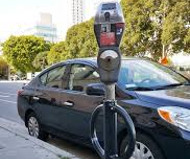Article from: www.thenewspaper.com/news/50/5094.asp
11/30/2016
California Supreme Court Finalizes Parking Ticket Ruling
Private companies may no longer decide the guilt or innocence of motorists who contest parking tickets in California.
 Los Angeles can no longer pawn off review of parking tickets to a private vendor after the California Supreme Court finalized a lower court's ruling last week. The justices turned away the appeal of city officials and their for-profit parking ticket vendor, Xerox, which means that they will now have to pay motorist Cody Weiss $721,995 to cover the costs he incurred in his challenge of a parking ticket he received for allegedly exceeding the two-hour limit on La Jolla Avenue in March 2012.
Los Angeles can no longer pawn off review of parking tickets to a private vendor after the California Supreme Court finalized a lower court's ruling last week. The justices turned away the appeal of city officials and their for-profit parking ticket vendor, Xerox, which means that they will now have to pay motorist Cody Weiss $721,995 to cover the costs he incurred in his challenge of a parking ticket he received for allegedly exceeding the two-hour limit on La Jolla Avenue in March 2012.
Weiss insisted the $55 ticket was bogus and that he did not overstay his time at the meter. Weiss contested the ticket, but Xerox sent him a letter on city letterhead denying his claim. In 2013, Xerox conducted 135,291 of these reviews, deciding which of 97 pre-written form letters to send to the motorist. Parking tickets are a significant source of revenue for the city, generating $158 million in annual profit.
Weiss insisted that the delegation of the ticket review process to a private company was illegal, and the courts agreed. The now final ruling will force the city to change the ticket appeal process so that a hearing officer who works for the city, not Xerox, conducts the review. The Court of Appeal cited the relevant state law that explains the "issuing agency" shall "advise the processing agency" of the results of any review.
"On its face, this language seems clear and unequivocal: the request for initial review is made to the issuing agency, and if the issuing agency is satisfied that dismissal is appropriate, it must advise the processing agency of the cancellation," Justice Thomas L. Willhite Jr wrote for the court. "Thus, the statute appears to contemplate that the issuing agency, not the processing agency, must conduct the initial review."
The court then examined the relevant legislative history and decided the clear intent was to have the private company process tickets, not make decisions about guilt or innocence. Because Weiss was fighting the system in the public interest, the court concluded, he was entitled to have his attorney's fees covered.
"At trial, Weiss was successful in obtaining injunctive and declaratory relief ending Xerox's unlawful but longstanding practice of conducting initial reviews, and compelling the city to comply with its statutory duty to perform that task," Justice Willhite wrote. "It is difficult to imagine a more fundamental public right than that the tribunal deciding a litigant's fate, even a tribunal convened at the first level of review to determine whether a litigant is liable for a parking violation, be a tribunal properly convened under the law and authorized by law to make the decision."
A copy of the appellate court ruling made final last week is available in a 270k PDF file at the source link below.
Source: Weiss v. Los Angeles (Court of Appeal, State of California, 8/8/2016)
Permanent Link for this item
Return to Front Page
 Los Angeles can no longer pawn off review of parking tickets to a private vendor after the California Supreme Court finalized a lower court's ruling last week. The justices turned away the appeal of city officials and their for-profit parking ticket vendor, Xerox, which means that they will now have to pay motorist Cody Weiss $721,995 to cover the costs he incurred in his challenge of a parking ticket he received for allegedly exceeding the two-hour limit on La Jolla Avenue in March 2012.
Los Angeles can no longer pawn off review of parking tickets to a private vendor after the California Supreme Court finalized a lower court's ruling last week. The justices turned away the appeal of city officials and their for-profit parking ticket vendor, Xerox, which means that they will now have to pay motorist Cody Weiss $721,995 to cover the costs he incurred in his challenge of a parking ticket he received for allegedly exceeding the two-hour limit on La Jolla Avenue in March 2012.